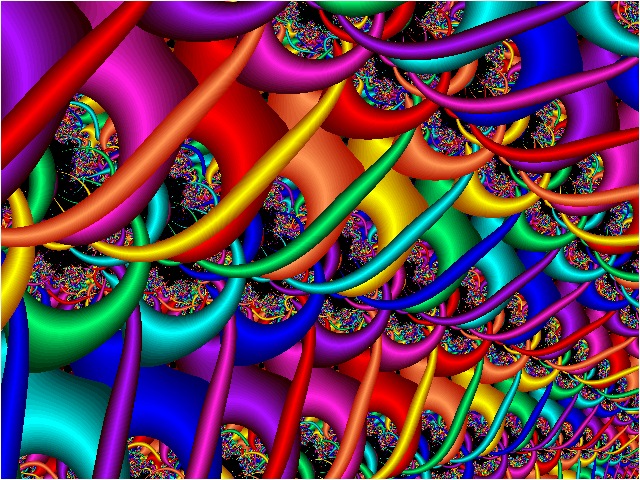Mathematical physics as a discipline focusses on the mathematical structure of
the principal theories of physics. This course, Mathematical Physics 3003, develops some
of the mathematics required for a full appreciation of these theories
and their mathematical structures.
It is suitable for intending mathematical physics students, but
should be useful also for all physics students, as well as those mathematics students
interested in the way analysis and algebra are used in physics.
A sound knowledge of linear vector spaces and abstract algebra (mainly group theory)
is assumed, as is available in
5807 Algebra II,
but for those students who have not completed this course I will provide help such as
extra lectures, tutorials and handouts, in order to cover the required assumed material.
I strongly recommend, however, that students take 5807 Algebra II first.
This course covers most of the following topics:
1. Tensor Algebra
Finite-dimensional vector spaces, bases and change of basis, linear
operators, linear functionals,
the dual space, dual basis, contravariant and covariant vectors. Inner product
spaces, indefinite metrics, Gram-Schmidt orthogonalization, tensors, tensor products and
contractions. Exterior algebra, r-forms, exterior products, dual vectors
and forms (time permitting).
2. Algebras
Finite and infinite groups, groups of transformations, symmetry groups;
the rotation and unitary groups, the Euclidean and Galilean groups.
General properties of matrix Lie groups and Lie algebras, infinitesimal generators,
one-parameter subgroups, the structure constants. Quaternions, Clifford
algebras, Grassmann algebras (time permitting).
3. Distributions
Infinite dimensional vector spaces, topology, convergence. Spaces of
test functions, continuous linear functionals, distributions, delta-functions
and derivatives of distributions.
Fourier transforms of distributions, tempered distributions,
calculation of Fourier series and Fourier transforms. Green functions and
linear partial differential equations, solution of the wave equation and
Poisson's equation.
References
No single book covers all the material of this course although there are
several books in the library which do cover most of the topics at a suitable level.
Here is a selection:
 C. J. Isham, ``Lectures on Groups and Vector spaces for Physicists'' (World
Scientific, 512.54 I79l).
C. J. Isham, ``Lectures on Groups and Vector spaces for Physicists'' (World
Scientific, 512.54 I79l).
 S. Axler, ``Linear Algebra Done Right'' (Springer, 512.64 A9691 .2).
S. Axler, ``Linear Algebra Done Right'' (Springer, 512.64 A9691 .2).
 C. W. Curtis, ``Linear Algebra, An Introductory Approach'' (Springer, 1984) 512.64 C978A.
C. W. Curtis, ``Linear Algebra, An Introductory Approach'' (Springer, 1984) 512.64 C978A.
 S. Roman, ``Advanced Linear Algebra'' (Springer, 1992) 512.64 R758a.
S. Roman, ``Advanced Linear Algebra'' (Springer, 1992) 512.64 R758a.
 Wu-Ki Tung, ``Group theory in physics'' (World Scientific, 1985) 517.986 T926g
Wu-Ki Tung, ``Group theory in physics'' (World Scientific, 1985) 517.986 T926g
 R. F. Hoskins, ``Generalized Functions'' (Wiley, 517.51 H826 g).
R. F. Hoskins, ``Generalized Functions'' (Wiley, 517.51 H826 g).
 R. P. Kanwal, ``Generalized Functions, Theory and Technique'' (Academic, 1983) 517.9824 K16g
R. P. Kanwal, ``Generalized Functions, Theory and Technique'' (Academic, 1983) 517.9824 K16g
 T. Schucker, ``Distributions, Fourier Transforms and some of their
applications to physics'' (World Scientific, 1991) 517.98243 S384d
T. Schucker, ``Distributions, Fourier Transforms and some of their
applications to physics'' (World Scientific, 1991) 517.98243 S384d
More advanced books:
 R. Geroch, ``Mathematical Physics'' (University of Chicago, 515.14 G377m).
R. Geroch, ``Mathematical Physics'' (University of Chicago, 515.14 G377m).
 Y. Choquet-Bruhat, C. DeWitt-Morette and M. Dillard-Bleick,
``Analysis, Manifolds and Physics'' (North-Holland, 1981) 517 C5495a
Y. Choquet-Bruhat, C. DeWitt-Morette and M. Dillard-Bleick,
``Analysis, Manifolds and Physics'' (North-Holland, 1981) 517 C5495a
Created November 8, 2000 by Sundance Bilson-Thompson.
Send email to Max
Lohe.
Last updated November 13th 2000.
